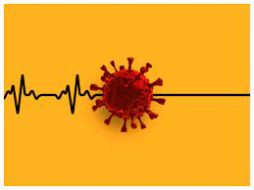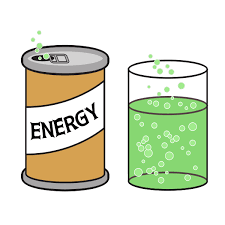The Shocking Truth: Corona Recovered Patients Have Cardiac Events
It is a well-established fact that COVID-19 can cause severe respiratory illness, but what many people don’t realize is that it can also lead to serious heart problems. In fact, recent studies have shown that corona recovered patients are at a higher risk of developing cardiac events such as heart attacks and strokes.
This is an extremely concerning development, as it means that even those who have recovered from COVID-19 may still be at risk of serious health complications. It is essential that we take this threat seriously and take steps to protect ourselves and our loved ones.
Understanding the Connection Between COVID-19 and Cardiac Events
COVID-19 is caused by a virus that primarily attacks the respiratory system, but recent studies have shown that it can also cause damage to the cardiovascular system.
The virus can directly infect the heart muscle cells and cause inflammation, which can lead to a range of cardiac events such as arrhythmias, heart failure, and myocarditis.

The Prevalence of Cardiac Events in Corona Recovered Patients

According to recent studies, up to 30% of corona recovered patients experience cardiac events after recovering from COVID-19. This alarming statistic highlights the need for increased monitoring and preventative measures in this population.
Furthermore, the risk of developing a cardiac event is higher in those who experienced severe symptoms during their COVID-19 illness. This underscores the importance of taking COVID-19 seriously and seeking medical attention if experiencing any symptoms.
The Symptoms of Cardiac Events in Corona Recovered Patients
Corona recovered patients are at risk of developing various cardiac events such as myocarditis, arrhythmias, and heart failure. These conditions can cause a range of symptoms including chest pain, shortness of breath, fatigue, and palpitations.
In some cases, the symptoms may be mild or even nonexistent, making it difficult to detect the presence of cardiac events. However, in other cases, the symptoms may be severe and require immediate medical attention. For example, a patient experiencing sudden chest pain or difficulty breathing should seek emergency medical care right away.
Real-life examples and case studies can help illustrate the seriousness of these symptoms and the importance of monitoring cardiac health in corona recovered patients. By understanding the symptoms and seeking prompt medical attention when necessary, patients can take steps to protect their heart health and reduce their risk of developing further complications.
Pathology that occurs in heart after corona virus attack:
COVID-19 can affect the heart in several ways, leading to various pathological changes. Here are some of the cardiac pathologies that can occur after a COVID-19 infection:
- Myocarditis: COVID-19 can cause inflammation of the heart muscle, known as myocarditis. This inflammation can weaken the heart muscle and affect its ability to pump blood effectively. Myocarditis can lead to symptoms such as chest pain, shortness of breath, palpitations, and in severe cases, heart failure.
- Cardiac Injury: COVID-19 can result in direct injury to the heart, leading to elevated levels of cardiac enzymes (such as troponin) in the blood. Cardiac injury can cause damage to the heart muscle cells and impair cardiac function.
- Arrhythmias: COVID-19 can disrupt the normal electrical activity of the heart, leading to arrhythmias. These abnormal heart rhythms can range from mild palpitations to more severe arrhythmias like atrial fibrillation or ventricular tachycardia.
- Thrombosis: COVID-19 is associated with an increased risk of blood clot formation. Blood clots can form in the coronary arteries, leading to a heart attack (myocardial infarction) or in other blood vessels, causing complications such as pulmonary embolism.
- Heart Failure: Severe cases of COVID-19 can result in heart failure, which occurs when the heart is unable to pump enough blood to meet the body’s needs. This can be due to myocarditis, cardiac injury, or other factors associated with the infection.
It’s important to note that these cardiac pathologies can vary in severity and may require medical intervention and close monitoring. If you have recovered from COVID-19 and are experiencing cardiac symptoms or concerns, it is essential to seek medical attention for proper evaluation, diagnosis, and management by healthcare professionals.
Preventing Cardiac Events in Corona Recovered Patients
Maintain a healthy diet: A balanced diet that is rich in fruits, vegetables, whole grains, lean proteins, and healthy fats can help reduce the risk of developing cardiac events. Avoid processed foods, sugary drinks, and excessive amounts of salt and saturated fat.
Stay physically active: Regular exercise can strengthen the heart muscle and improve cardiovascular health. Aim for at least 30 minutes of moderate-intensity exercise most days of the week. Consult with your doctor before starting any new exercise routine.





